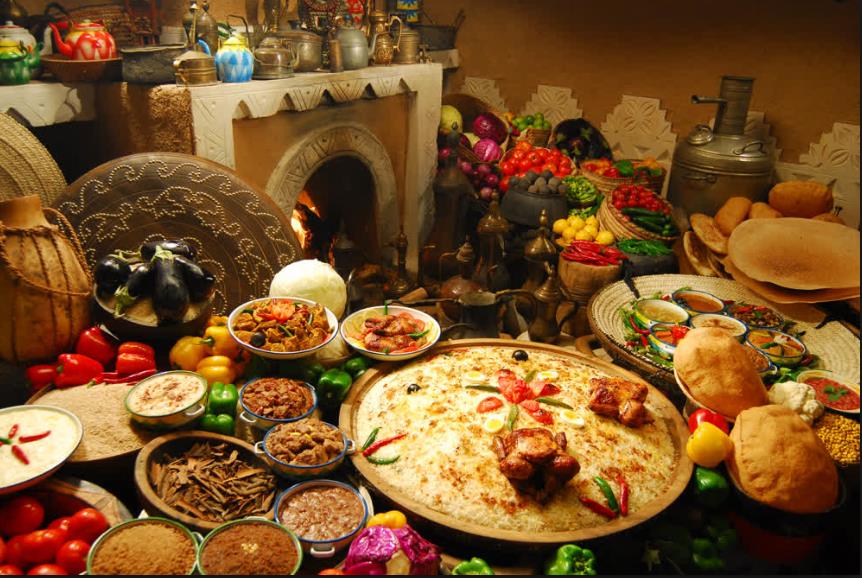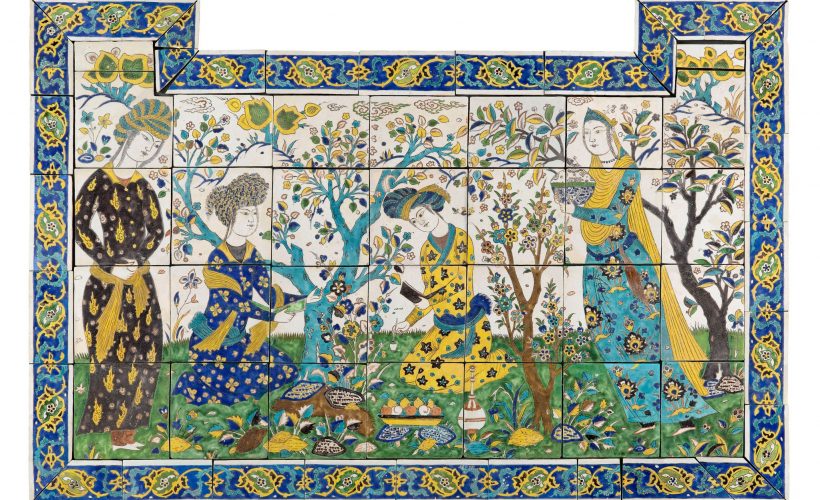History & Heritage
10.1.2019
When Gulf cuisine struggles to make a name for itself

Do you know mantu, saleeg or sayadiya? No ? No wonder. These are culinary specialities from Saudi Arabia and, by extrapolation, from the Arabian Gulf. Despite its relatively varied cuisine, the region struggles to export its specialities, while its neighbours in the Arab world and the Middle East shine with their cuisines in every corner of the world.
Cooking is a language, explained anthropologist Claude Lévi-Strauss. It must be said that the one of Saudi Arabia – and the Gulf, by extension – is inaudible. While French, Italian, Japanese or Chinese gastronomy is well established in all the major cities of the world, Lebanese neighbors are flooding the world with falafels, kebap has become a flagship of Turkish cuisine and couscous, that of North Africa, “Khaleej” cuisine, is struggling to be exported.

An assortment of Khaleeji dishes.
“What do you know about cooking?”
However, the region is not very stingy in terms of culinary specialties. From mantu, this tasty raviole stuffed with meat, a cousin of the Chinese dim sum, to mutabbaq, a wheat cake filled with vegetables, to kabsa, rice flavoured with lamb shank, as well as numerous rose and date desserts, the peninsula’s cuisine offers a plethora of flavors, all or almost unknown outside its borders.
Mayada Badr is the first witness to this notoriety at half-mast. Culinary consultant, chef and owner of a restaurant and a pastry shop in Jeddah, Saudi Arabia, this thirty-year-old Saudi studied cooking at Le Cordon Bleu in Paris and worked in the kitchens of La Durée and Bastide Saint-Antoine in Grasse. Since then, she has become accustomed to mixing with the greatest European chefs in the kitchens of social events.

Chef Mayada Badr is used to serving in prestigious events, like here at the Saudi National Day in Paris.
“When you are a Saudi chef from Saudi Arabia, which is not known for its cuisine, and you are a consultant and you go to France or Italy, you will talk to those chefs who have worked there all their lives, they look at you and say: “What do you know about cooking? What are your references?” They don’t know anything about Saudi cuisine. They don’t know our flavors,” says Chef Badr.
A well-kept secret
This lack of knowledge is rooted, according to Mayada Badr, in the “secret” cultivated by the Saudis and the inhabitants of the Arabian Peninsula around their culture. “I think the Saudis are a little more closed”, she concedes. “We didn’t want to share anything, we didn’t want anyone to take our secrets”. A trend she also observes in kitchens. “Even when you’re looking for recipes,” she continues. “It is very difficult to find well-documented Saudi recipes and dishes. Each house has its own recipe.”

Saudi recipes can be hard to teach or reproduce, due to the lack of documentation.
In contrast, France and its gastronomic culture are much more visible. An inherent fact in the history of France, according to Chief Badr. “French cuisine is older, the French have documented it and shared their knowledge with the world,” she explains. Like Louis XIV, who wanted to share French cuisine, French art… They danced, they made music… He shared all this knowledge to conquer the world. He wanted everyone to look at France and copy it.”
The French example is also cited by Karim Haïdar, chef of several Lebanese restaurants in Paris and president of the Académie de Cuisine du Monde Arabe, an association working to promote the gastronomy of the Arab world. “Most cooking schools around the world are built on the training model of French cuisine,” he says. “When you are in a country where there is no real culinary tradition, the cooks of these countries will be much more interested in cuisines from elsewhere,” Result, the regional culinary culture is neglected and we even see more foreign restaurants growing in Saudi Arabia than authentic Saudi cuisine addresses. That is why Chef Mayada Badr is sounding the alarm:”I think the government must work on this, we must document all the recipes, all our traditions, the different techniques we used and the reasons why we cook like this. “
popular

